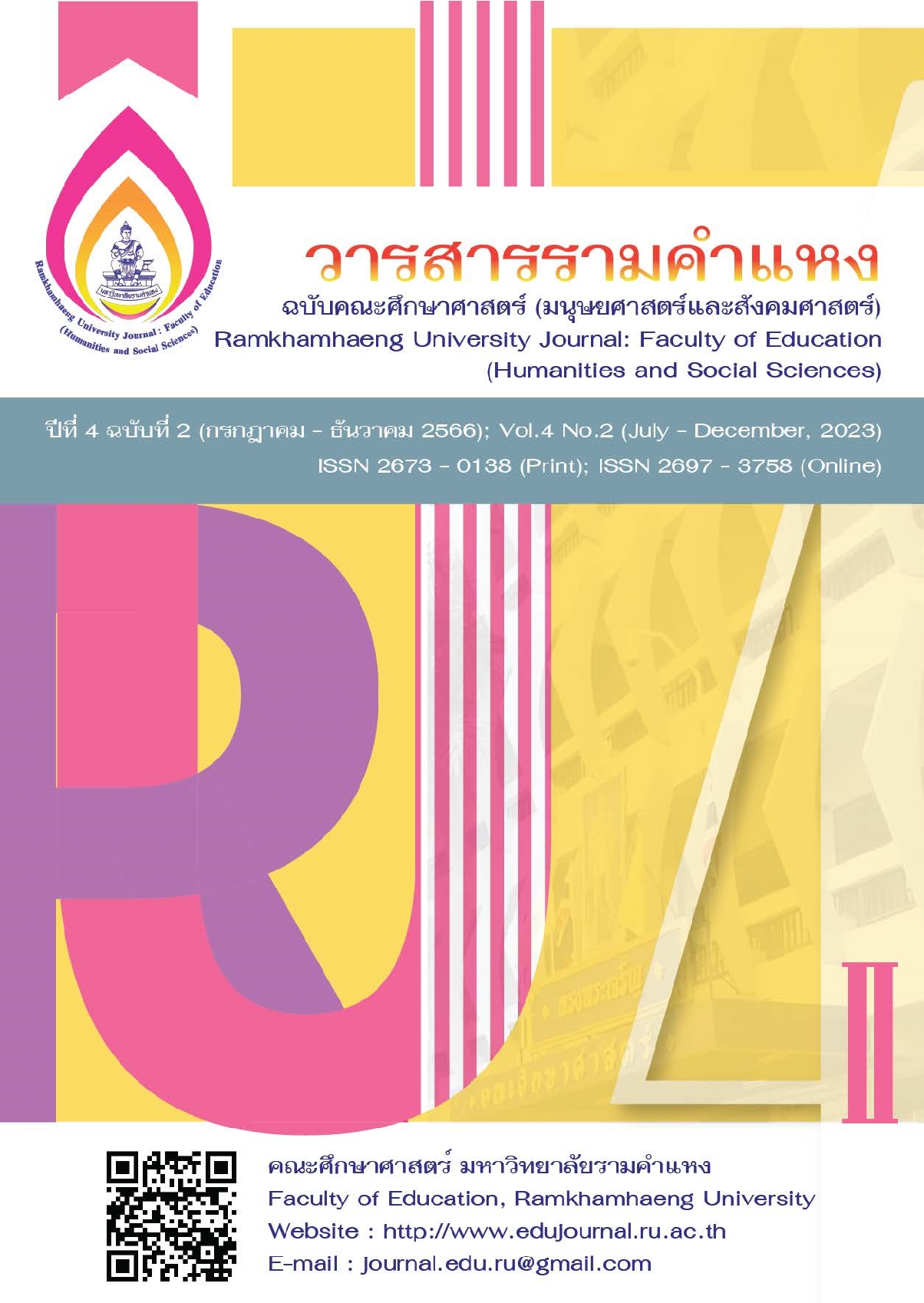The Political Legitimacy of King Rama IV from in His Official Title
Main Article Content
Abstract
Political legitimacy is a crucial factor in maintaining status as the King of the Kingdom of Siam in order to maintain the stability of the Kingdom's rule. In which political legitimacy can be manifested through linguistic symbols such as the official title. In particular, King Rama IV’s official title, which clearly conveys his political significance. This academic paper aims to study the political legitimacy of King Rama IV from his official title. This study used the Documentary Research method and presented the results by analytical description. The study show that the political legitimacy found in the King Rama IV’s official title has five characteristics as follows: ( 1) social legitimacy, ( 2) legitimacy by birth, ( 3) ritual legitimacy, (4) legitimacy by Buddhism beliefs and (5) legitimacy by Brahmin-Hinduism beliefs. The political legitimacy of his majesty King Rama IV emphasizes the inherent right of succession to the throne and ensures the stability of his status as the King of the Kingdom of Siam and correct according to tradition. The latest pattern-forming of his official title was used as a tool to demonstrate political legitimacy through linguistic symbols.
Downloads
Article Details

This work is licensed under a Creative Commons Attribution-NonCommercial-NoDerivatives 4.0 International License.
ผู้ส่งบทความ (และคณะผู้วิจัยทุกคน) ตระหนักและปฎิบัติตามจริยธรรมการวิจัยอย่างเคร่งครัด ทั้งนี้บทความ เนื้อหา ข้อมูล ข้อความ ภาพ ตาราง แผนภาพ แผนผัง หรือข้อคิดเห็นใดๆ ที่ปรากฎในบทความ เป็นความคิดเห็นและความรับผิดชอบของผู้ส่งบทความ กองบรรณาธิการไม่จำเป็นต้องเห็นตามเสมอไป และไม่มีส่วนรับผิดชอบใดๆ โดยถือเป็นความรับผิดของของเจ้าของบทความเพียงผู้เดียว
References
Banharn, C. (2009). Political modernity along the lines of Rama IV’ s initiatives. [Master thesis, Srinakharinwirot University]. Retrived from http://thesis.swu.ac.th/swuthesis/His/Chonlapoom_B.pdf (in Thai)
undham, D. (2012). The great king and buddhism. Bangkok: Amarin Printing & Publishing. (in Thai)
Bunnag, P. (2000). The official title of his majesty the king of Rattanakosin period (3 rd ed.). Bangkok: Chulalongkorn University Press. (in Thai)
Chandransu, T. (2011). The political view of King Rama IV on the institution of monarchy. The 1st STOU Graduate Research Conference, Bangkok, 47-55. (in Thai)
Damrong Rajauphab, H.R.H. Prince. (1946). Memory. (n.p.). (in Thai) Katasila, S., & Tansun, S. (n.d.). Political legitimacy. Academic papers for political development plan. Retrived from http://pirun.ku.ac.th/~fsocsrt/image/a_sarttarin_001.pdf (in Thai)
Lertsomporn, V. (n.d.). Thai government with political legitimacy. King Prajadhipok’s Institute. Retrived from http://kpi.ac.th/public/index.php/knowledge/book/data/408 (in Thai)
Makanan, A. (2007) . The Thai elite's conception of Chakravartin, 1629 -1851. [Master thesis, Chulalongkorn University]. Retrived from http://cuir.car.chula.ac.th/handle/123456789/14768 (in Thai)
Ministry of Culture. (2019). The royal coronation ceremony 2019. Bangkok: Rung Silp Printing. (in Thai)
Mongkut, His Majesty King. (1861). Meeting to announce the reign of King Rama IV part 5. Bangkok: Sophonphiporn Thanakorn Printing. (in Thai)
Mongkut, His Majesty King. (1958). Pali writings by his majesty king Rama IV about the history of Rattanakosin period, Luang Yanwichit translated into Thai. Bangkok: Chanwa Printing. (in Thai)
Mongkut, His Majesty King. (2005). Collection of writings by his majesty king Rama IV, his majesty rama IV 's royal writing. Bangkok: Kurusapa Business Organization. (in Thai)
Office of the Royal Society. (2011). Royal institute dictionary, 2011. Retrived from https://dictionary.orst.go.th (in Thai)
Pakdeekham, S. (2019). After the Khmer-Thai word. Bangkok: Matichon. (In Thai)
Princess Maha Chakri Sirindhorn Foundation. (2011). Directory king of Thailand. Bangkok: Nanmeebooks Publications. (in Thai)
Puckadhikom, C. (1985). An analytical study on the legitimacy of the absolute monarchy in the Ayudhya period. NIDA Development Journal, 28(2), 250-275. (in Thai)
Teerawat, N. (1982). The political thought of King Mongkut. [Master thesis, Chulalongkorn University]. Retrived from http://cuir.car.chula.ac.th/handle/123456789/17578 (in Thai)
The Government Public Relations Department. (2019). The official title of his majesty the king in the royal golden plaque. The Coronation of King Rama X. Retrived from http://phralan.in.th/coronation/vocabdetail.php?id =52 (in Thai)
Thipakornwong, Chao Phraya. (1934). The history of Rattanakosin period in reign King Rama 4. Bangkok: Phra Chan Printing. (in Thai)
Weber, M. (1958). The three types of legitimate rule. (Hans Gerth Trans.). Berkeley Publications in Society and Institutions, 4(1), 1-11.


